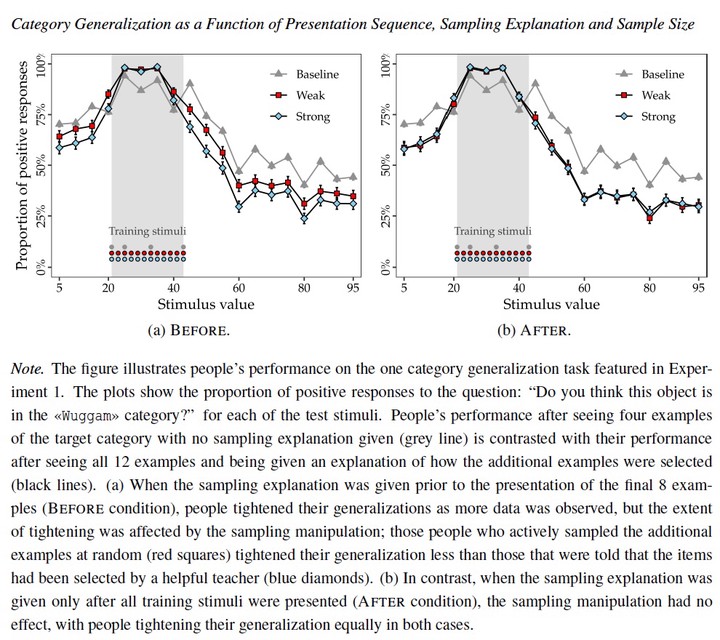What do our sampling assumptions affect: How we encode data or how we reason from it?

Abstract
In describing how people generalize from observed samples of data to novel cases, theories of inductive inference have emphasized the learner’s reliance on the contents of the sample. More recently, a growing body of literature suggests that different assumptions about how a data sample was generated can lead the learner to draw qualitatively distinct inferences on the basis of the same observations. Yet, relatively little is known about how and when these two sources of evidence are combined. Do sampling assumptions affect how the sample contents are encoded, or is any influence exerted only at the point of retrieval when a decision is to be made? We report two experiments aimed at exploring this issue. By systematically varying both the sampling cover story and whether it is given before or after the training stimuli we are able to determine whether encoding or retrieval issues drive the impact of sampling assumptions. We find that the sampling cover story affects generalization when it is presented before the training stimuli, but not after, which suggests that sampling assumptions are integrated during encoding.